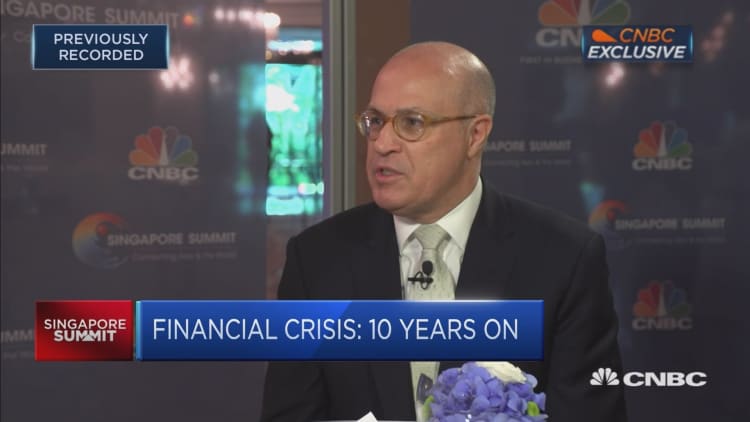
When it comes to the oversight of cryptocurrencies, regulators need to avoid inhibiting innovation, yet be vigilant against manipulation, said U.S. Commodity Futures Trading Commission Chairman J. Christopher Giancarlo.
Speaking to CNBC at the annual Singapore Summit on Friday, he said that the internet flourished because the government did not step in too heavily, and applied a "do no harm" approach.
"And I'm advocating the same approach to cryptocurrencies and all things having to do with this new digital revolution of markets, and of currencies, and of asset classes," Giancarlo said.
But, at the same time, caution is required because some kinds of fraud and manipulation often seen in foreign exchange and precious metals are now taking place in cryptocurrency markets, he said.
"When it comes to fraud and manipulation, we need to be strong. When it comes to policy making, I think we need to be slow and deliberate and well informed," he told CNBC.
The CFTC, which is tasked with regulating commodity, futures and derivatives markets, said in 2015 that virtual currencies, also known as cryptocurrencies, are commodities. Virtual currencies like bitcoin can be regulated as commodities by the U.S. Commodity Futures Trading Commission, a federal judge ruled this year.
Both the CFTC and Securities and Exchange Commission have warned of the need to combat fraud in virtual currency markets.
As for criticism that authorities are moving too slowly when it comes to regulating cryptocurrencies, Giancarlo refuted such talk, pointing to how bitcoin futures are now allowed in the U.S.
"Some would say we're too slow, others have said we've been too fast. So, we at the CFTC, saw the very first regulated offerings of bitcoins futures," he said. "No other regime in the world has allowed this to go forward."
— Reuters contributed to this story.


